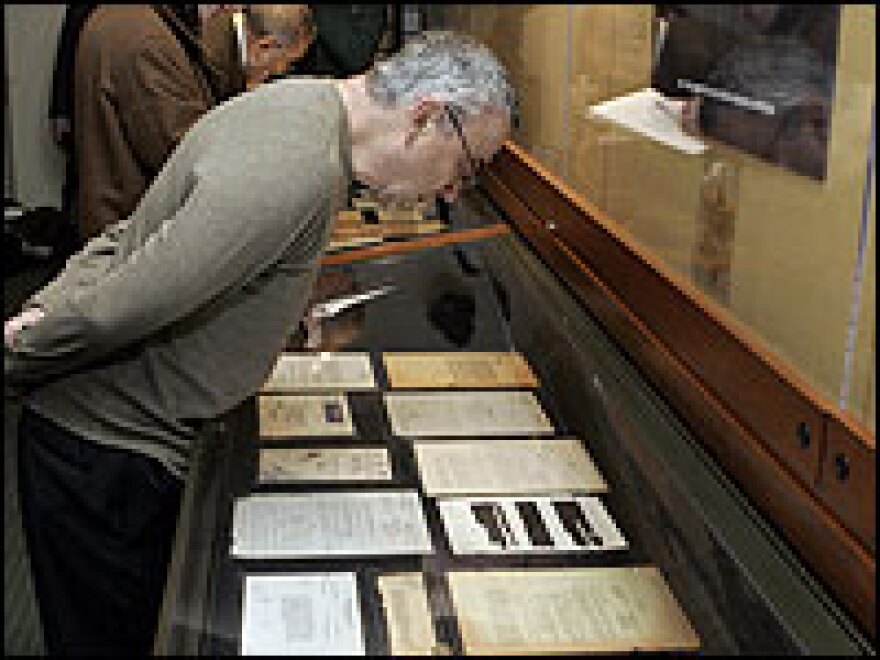
A year and a half ago, Estelle Guzik was indexing some 100,000 Holocaust documents in the archives of the YIVO Institute for Jewish Research in New York when she stumbled across something remarkable. Amongst the files were the undiscovered letters of Otto Frank, the father of famed diarist and Holocaust victim, Anne Frank.
The documents had been moved there more than 30 years before from the Hebrew Immigrant Aid Society. While indexing, she noticed one of the birth dates was missing from a file.
"Estelle Guzik reopened the file to locate the birth date and then immediately came upon the names of Anne and Margot Frank," says Dr. Carl Reins, Executive Director of YIVO.
Due to a clerical error, Guzik rediscovered the letters that illuminate Frank's failure to get his family out of Nazi-occupied Holland.
After the files were found, they were embargoed until issues of privacy, copyright and provenance could be determined. Since the Hebrew Immigrant Aid Society documents came from so many different agencies, it may be impossible to locate the source of the Otto Frank file.
The Failure to Get Out
Between April and Dec. 1941, Frank wrote to relatives, friends and officials, trying to arrange safe passage for his wife, Edith, and daughters, Margot and Anne, either to the U.S. or Cuba.
Frank first applied for immigration in 1938 and then revived those efforts in 1941. In hindsight, that seems very late. But historians today say that in the spring of 1941, Germany had not yet decided to exterminate the Jews, and the Nuremberg Laws that discriminated against Jews had not yet taken effect in Holland.
"This is not a peculiar story," says David Engel, a professor of Holocaust studies at New York University. "It is, all too sadly, an all too-typical-one."
But because of the detailed and beautiful writing in Anne Frank's diary, her saga has become a doorway into understanding the Holocaust for millions.
Barriers on Both Sides of the Ocean
Both Engel and Richard Breitman, a professor of German history at American University, say the documents reveal that the actions of Nazi Germany weren't the only impediments that kept the Frank family from fleeing.
"Anne Frank could be a 77-year-old woman living in Boston today – a writer. That is what YIVO's documents suggest," says Breitman. "The Frank family could have probably gotten out of the Netherlands even during much of the year 1941 but the decision to try hard came relatively late. The Nazis made it harder and harder over time and, by that time, the American government was making it harder and harder for foreigners to get in."
According to Breitman, the U.S. restricted immigration in the name of protecting national security. A suspicion of those who were different, Anti-Semitism and xenophobia played a part. Otto Frank had powerful friends in the U.S., including Nathan Straus, the son of an owner of Macy's. Straus agreed to pay thousands of dollars to help secure visas and documents, but it was not enough.
Frank then attempted to gain entry into Cuba, but those plans were cancelled when Germany declared war on the U.S. The Franks went into hiding in 1942 and were discovered and arrested two years later.
Copyright 2023 NPR. To see more, visit https://www.npr.org.



